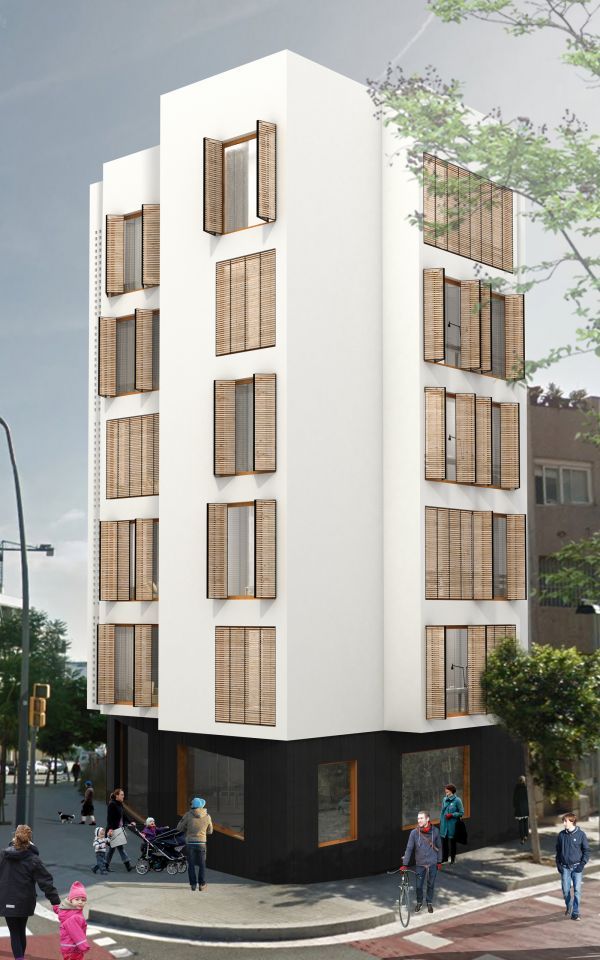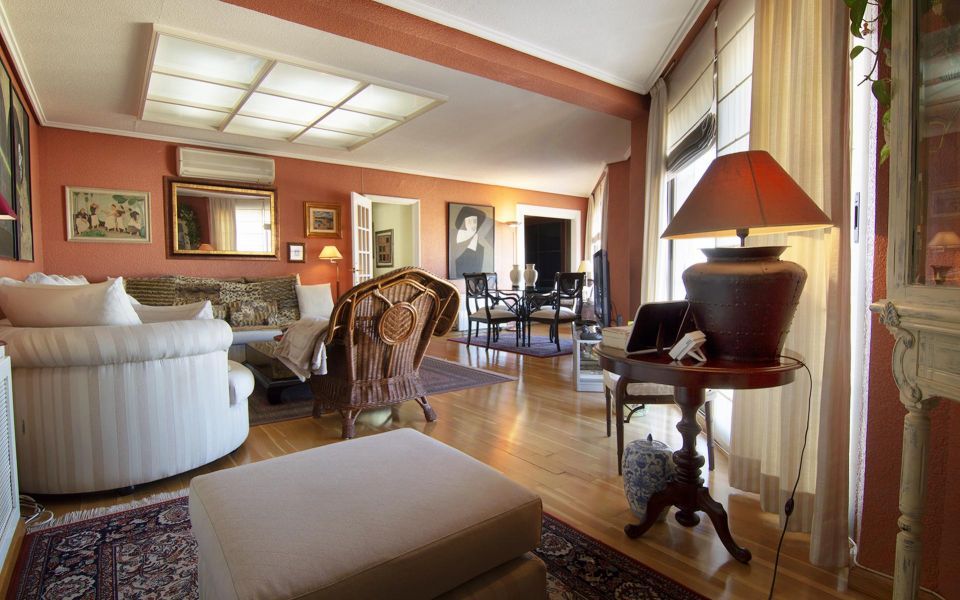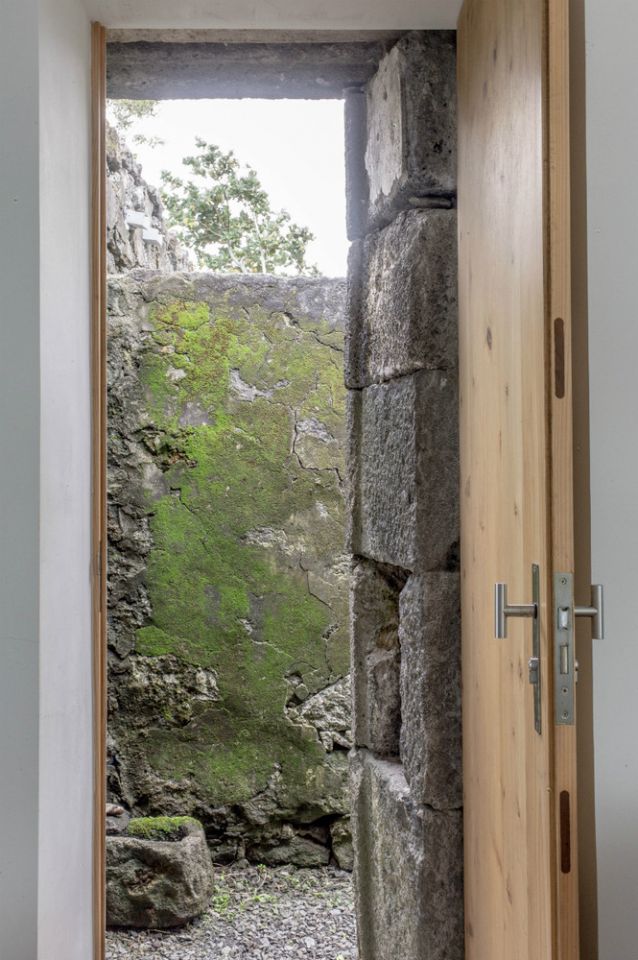Find your dream home or make it yourself
How hard it is to bring dreams down to earth! That beautiful house you have in mind can be achieved if you know how. Order your priorities and let yourself be helped by reading these tips.
If you are reading this, you probably know that Monapart sells #viviendasbonitas. As difficult as it is to define what is a beautiful homeWe see on a daily basis that our buyers are clear about their own definition of what it is. In the case of our typical customer, apart from the logical aesthetic criterion, there is also one of exclusivity: "I want special housing. The potential buyer sees a house we have in our portfolio, calls us, visits it and assesses it according to his parameters, all very obvious up to this point. The thing is, when it comes to a slightly more aspirational product, people are generally very (too) clear about things.
The problem of having things so clear is losing options to get the house of your dreams. Sticking to something very specific can close the door to very interesting and (although you may not know it) suitable product for your needs, and can lead you to buy a house that fulfils your wish list but then you are not satisfied (or cannot afford the price). If, on top of that, the market is as it is at the moment, where good product is becoming scarce, you are even more likely to get it wrong.
When it comes to a somewhat more aspirational product, people are generally very (too) clear. The implicit problem is losing out on the chances of getting the house of your dreams.
The first general advice is to "strip" your idea down to its bare bones. Locate your priorities and take a good look at which of your wishes are really essential. And be aware that not all your wishes can be essential. We always tell our clients that the perfect house doesn't exist and they always reply that it does, but they can't afford it. (touché).

Let's take an example of what we mean by "stripping down" your idea: don't say that you would never buy a north-facing house, because you might find a house that meets all your requirements but that one, and you are closing the door on it. This is not to say that orientation is not important, but you have to know why it is important. The answer will always be that - in short - orientation is important for light and temperature. What if you find a house with very good insulation and lighting, facing north? Then your requirement can never be "no north" but "good light and good temperature".
Another valid example is height. According to a study that we have not carried out (because it is not necessary), a very high percentage (we would need to give a figure, but I would swear that it is close to 80%) of flat buyers do not want first floor heights. But I am very struck by the fact that this percentage decreases for foreign clients (paradoxically, the same is true for the lift requirement). It turns out that it is something with a cultural component, but it means that we ask for something and we don't know why.
I come back to the previous advice: if it's about brightness, think only about that. If it's about safety, value safety. Once, one of the founders of Monapart, José Luis Echeverríahe gave me this explanation: Buyers in countries with, shall we say, a non-Catholic tradition, have a lesser sense of modesty and privacy, so that having a wonderful terrace in an apple courtyard does not make them think that they are at the centre of a target of prying eyes and prying eyes, but that they have a wonderful terrace in a house in the city. This may also explain the absence of curtains in northern Europe. In general, we do not want to be too close to the street...
So far we have said, in a nutshell, get your ideas straight. And now let's turn it around: do it yourself. Create the house of your dreams. Or, in real estate terms, build your house on a plot of land or buy a flat to renovate.

First of all, I have to warn you about something important: the money. I'm not saying this because it's more expensive than buying ready-to-wearbecause it will depend on many factors. You can opt for recycled materials or gold taps, you can buy in the Bronx or on Fifth Avenue, or you can do the work with a professional or with your brother-in-law (we'll come back to this later). The issue is financing, as almost always. If you have all the money because you have sold another house or because you have inherited the fortune of an octogenarian millionaire who became attached to you, this does not affect you. If, on the other hand, you have to go to your favourite bank and ask for something, you can basically find yourself in one of three situations:
- If you buy a new or used home to move into, the bank will normally give you 80% of the purchase price or the appraised value (whichever is lower). You will have to have between 32 and 35% of the purchase price saved to cover the costs as well. This being the general rule, it is not difficult to find financing for higher percentages of the purchase price, depending on the entity, client profile and sometimes on whether the person financing the property has a great interest in the sale (bank-owned property, that is).
- Purchases to reform: think exactly as in the previous case, but adding the reform to the amount you have to save. Nowadays it is very difficult for a bank to finance a reform in the mortgage loan, but you can always resort to "personal" loans.
- You buy a plot and you build: the opposite happens to what happens when you buy to renovate. Let me explain: in the previous case, they finance -almost everything- the property and you pay for the construction, but if you are a self-promoter, which is what the bank will call you, you buy the property with your savings, which in this case is the plot, and the bank finances the construction (80% of its value in normal conditions). I have even seen mortgage financing for buying and building, but this is also an extremely rare case.
Buying a property to move into, whether it is new or used:
It is time to develop the three cases, and we start with the first one. I have already talked about it, explaining that having a clear idea is not a bad thing in itself, but it is advisable to define it. To do this, you can either soak up articles you find on the internet, such as "the definitive guide to buying your flat without going to a real estate agent who will take your money for something you can do yourself".Or you can go to a real estate agent to get the money. Although it may seem like I'm throwing stones at myself, I'm not, I'm throwing stones at the nice people who write these articles.
There is some truth to this, because it is very difficult to distinguish a good agent from a "salesman". I have always thought that The job of an estate agent is not to sell flats, but to sell his services. So, a bad agent will try to sell you any flat they show you, but (good news!), they can't. In fact, a bad agent can stop you from buying the flat you really need. In fact, a bad agent can stop you from buying the flat you really need. On the other hand, a good agent, who also wants you to buy the flat (he/she has to live, poor thing), but knows how to tell you why you have to buy it. The best ones will even tell you why you shouldn't buy it.
A bad estate agent will try to sell you any flat they show you, but (good news!), they won't be able to.
And now comes the magic moment to talk about "who is your agent". In reality, you can function on the basis of calls to advertisements on real estate portals, running the risk that the flat you like will be sold exclusively by the agency you don't like. We know the odyssey of looking for a flat in Valenciafor example. Depending on the market you are in, this risk will be lower or higher, and although it is not a risk that will normally have serious consequences, it can lead to a frustrating situation in the search process. In addition, you have to take into account who the agent of the flats you call to visit "in theory" works for.
Although some say they are "buyer's" agents, at no point will you have hired a buyer's agent, they will simply show you the property. But you have the option of hiring a real buyer's agent. They will take care of everything, give you advice and support you. Real Estate Personal Shopperthey call it. Buyer's agent, I prefer to call it. We won't go into it, because it's not my mission today, but in case you decide to go it alone, we recommend that you always have a primary agent that you can call if you need to and don't charge for the consultation. Believe it or not, some of us like to make friends at work. In other words, we like to work among friends.

Buy house for renovation:
Second case: renovations (if you are terrified of this word, read on, I'm going to take it away from you). In addition to everything mentioned in the previous case, you have to add the problem of building work. You will also find millions of articles on the subject, like this one: Successfully renovating a house and not dying in the attemptBut my first and foremost advice is one: hire a professional. And I say more: hire a real architect or interior designer.
I assume you know what an architect is, but I'll take the liberty of explaining what an interior designer is: a person, usually trained, who works on the interior architecture of a space. Sometimes they are called "interior architects", and sometimes they are, in fact, architects. And do you know what an interior designer is NOT? A self-described interior designer (or decorator).
A professional will charge you a fee. Some will even ask for a fixed fee that does not depend on the price of the project, but on the amount of work. And if they do that, they almost certainly won't then put hidden margins into the prices of contractors and materials (it doesn't hurt to make sure of that). So, for little money (trust me), someone will look after your real interests. And it will end up coming out cheap (believe me, I tell you).
What I don't recommend is that you believe that a builder-reformer is going to do the same. He will make more money the more money you spend, so you tell me. On the design side, you might find a builder who is an architect or interior designer and knows what he's doing, but it's always best to start by looking for the professional. And look for one who understands you, because he will also understand what you need, and will have in mind the house you want, and ultimately, you will end up achieving your goal. And be based on trust (it is easy to spot the sellers of smoke and mirrors). Of course, always do everything in writing.

Buy a plot and build your house:
And now comes the third option. We are going to build a house. Actually, the case is very similar to the previous one, although the part of looking for the property is, a priori, simpler (only land, in principle). But you will have to take into account certain factors: location of the plot, possible development costs, urban development status, views, shapes, buildability... uff, many things. But, magic again, an architect can help you with this, and there are even some architect-agents. And by the way, we have one in our team...
The option of looking for land to buy is, a priori, simpler. But you will have to take into account certain factors: location of the plot, possible development costs, urban development status, views, shapes, buildability... uff, a lot of things. But magic, an architect can help you with this.
I will now give you two pieces of home-grown advice. The first is to look for a plot that has "something" on it. A flat, square plot will make things very easy for the architect. Too easy, in fact. I can give you examples of houses that need to avoid trees, semi-buried houses o houses on cliffs (all three appear in the first season of The World's Most Extraordinary Homes, where you can see some more examples of this). Flat plot, good; challenge a good architect, better. And don't rule out buying a charming house to "complete", albeit literally, a ruin.
And my second piece of advice is to consider industrialised (or modular) construction. We have worked on it in Barcelona and now in Valencia, and it has multiple advantages. Moreover, you will have it very quickly, and if you choose the right company (do not hesitate to ask us), it will also be an efficient house. And you can also challenge with them, as I said before, a daring architect.

In closing, I want to answer a question you may have asked yourself: But aren't you a sales agent? My answer: it is not wrong to give advice to buyers, as I have told you before, we like to work among friends. But if you are a seller and you are reading this, it can help you to get an idea of how we treat buyers and how we work with your product. Whether you are one or the other, I hope you have found it useful.


